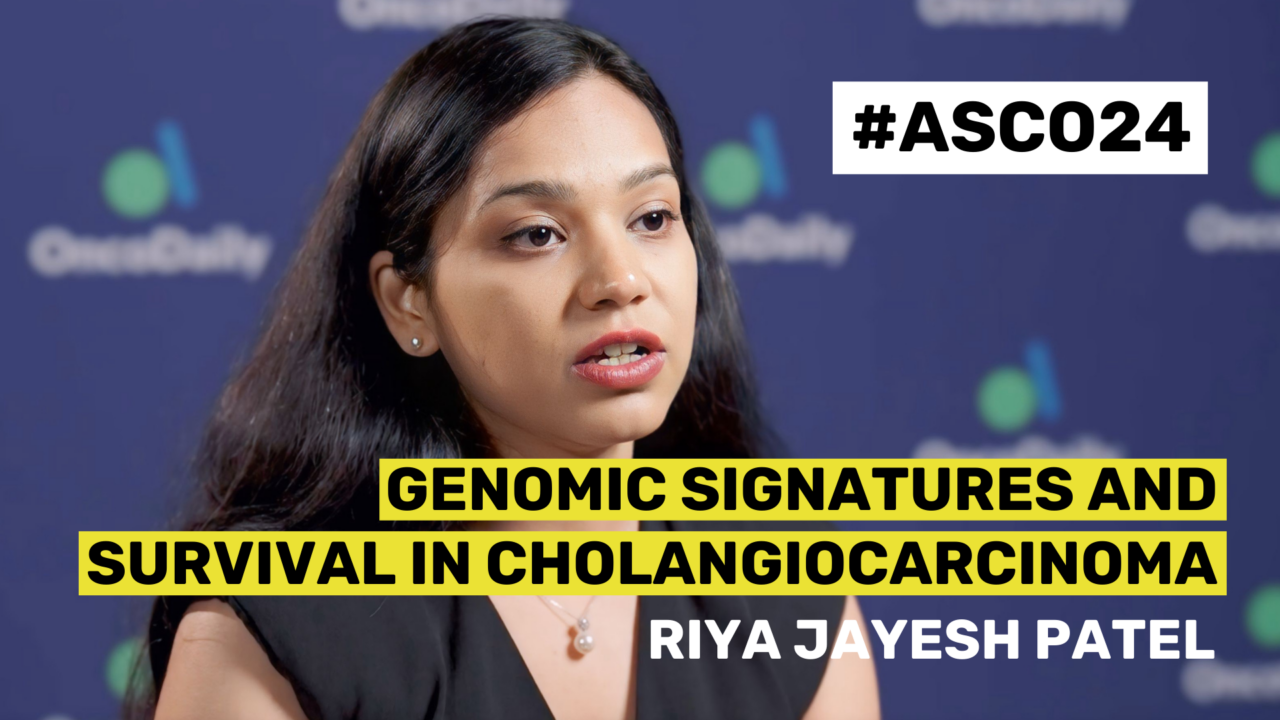The American Society of Clinical Oncology (ASCO) Annual Meeting is one of the largest and most prestigious conferences in the field of oncology. This year, the meeting took place from May 31 to June 4 in Chicago, Illinois. The event gathers oncologists, researchers, and healthcare professionals from around the world to discuss the latest advancements in cancer research, treatment, and patient care. Keynote sessions, research presentations, and panel discussions are typically part of the agenda, providing attendees with valuable insights into emerging trends and innovations in oncology.
This year, OncoDaily was at ASCO 2024 for the first time covering the meeting on-site. We had the pleasure of interviewing researchers who summarized the highlights of their work.
In this video, Dr. Riya Jayesh Patel, Chief Fellow from Roswell Park Cancer Institute, shared insights on ‘Genomic predictors of sensitivity to chemotherapy and immunotherapy in cholangiocarcinoma.‘
Hi, my name is Dr. Riya Patel and I’m a chief fellow at Roswell Park Cancer Institute and affiliated with the University at Buffalo. I’m here to talk about my poster which is based on genomic signature analysis and survival outcomes in cholangiocarcinoma using the Orion database.
So, the Orion database is a network of 13 different institutes across the United States and in this database of about 78 patients, we aimed to look at how this metastatic cholangiocarcinoma have different genomic expression that can predict or at least help us predict and identify biomarkers that can be useful in identifying which patients would do better with chemotherapy or immunotherapy.
So, in this analysis, we basically looked at the RNA sequencing data of the 78 cholangiocarcinoma patients and identified the transcriptional portion for T-effector and T-regulatory cells based on which we identified cold and hot tumors with T-effector to T-regulatory cell ratios less and high.
In our analysis, we identified about nine genes that are differentially expressed within the hot tumors and the cold tumors, namely cholangiocarcinoma over here, and we noticed that the hot tumors, they had more differential expression and up-regulation of the genes that were involved in immune cell pathways. So, the genes like CTLA4, CD80, which we pretty much know are related to predict immunotherapy response.
However, we noticed that in cold groups, we saw up-regulation of different metabolic genes that control different processes of cellular cycles, namely respiration, cholesterol, and amino acid transport. So, with this new data, I think we can leverage this in designing clinical trials and more studies that can help us identify who would be the patients responding better or worse with chemotherapy or immunotherapy. Thank you.
More videos and content from ASCO 2024 on OncoDaily.


